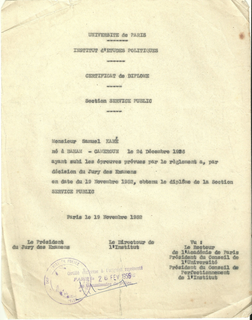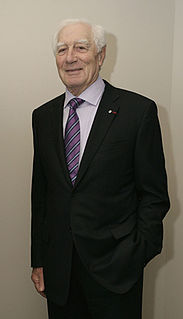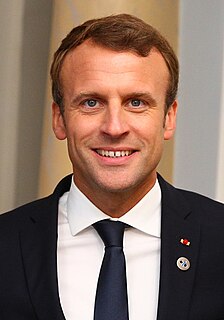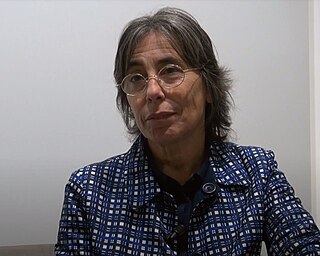Scope
The purple economy is multidisciplinary, in that it enriches all goods and services by capitalizing on the cultural dimension inherent to every sector. The sensory, experiential economy is one application of this. [19]
It differs from the cultural economy, which is sector-based.
In June 2013, the conclusions of a first inter-institutional working group on the purple economy, formed of experts from UNESCO, the OECD, the International Organisation of the Francophonie, French ministries, various companies and civil society. That document underscored the impact of the phenomenon of culturalization, which now affects the entire economy, with follow-on effects on employment and training. The report differentiates between purple jobs and purplifying professions: the former are directly linked to the cultural environment by their very purpose (like town planners and developers), while the latter are merely caused to transform under the effect of culturalization (such as positions in human resources or in marketing and communications). [20]
Another reference document published in June 2017 [19] mentioned various aspects of the human environment in which economics are likely to produce cultural benefits: architecture, art, colours, enjoyment, ethics, heritage, imagination, learning, social skills, singularity, etc.

The Organisation internationale de la Francophonie is an international organization representing countries and regions where French is a lingua franca or customary language, where a significant proportion of the population are francophones, or where there is a notable affiliation with French culture.

Raymond Octave Joseph Barre was a French centre-right politician and economist. He was a Vice President of the European Commission and Commissioner for Economic and Financial Affairs under three presidents and later served as Prime Minister under Valéry Giscard d'Estaing from 1976 until 1981. As a candidate for the presidency in 1988, he came in third and was eliminated in the first round. He was born in Saint-Denis, in the French island of Réunion, then still a colony.

The Paris Institute of Political Studies, commonly referred to as Sciences Po Paris or just Sciences Po, is a grande école and grand établissement located in Paris and other cities in France.

Europe 1, formerly known as Europe n° 1, is a privately owned radio station created in 1955. Owned and operated by Lagardère Active, a subsidiary of the Lagardère Group, it is one of the leading radio broadcasting stations in France and its programmes can be received throughout the country.
France Soir was a French newspaper that prospered in physical format during the 1950s and 1960s, reaching a circulation of 1.5 million in the 1950s. It declined rapidly under various owners and was relaunched as a populist tabloid in 2006. However, the company went bankrupt on 23 July 2012, before re-emerging as an online-only media in 2016. During the coronavirus pandemic it published many false claims and conspiracy theories about the disease and in 2020, according to NewsGuard, this media "fails to adhere to several basic journalistic standards".

Michel Déon was a French novelist and literary columnist. He published over 50 works and was the recipient of numerous awards, including the Prix Interallié for his 1970 novel, Les Poneys sauvages. Déon's 1973 novel Un taxi mauve received the Grand Prix du roman de l'Académie française. His novels have been translated into numerous languages.

Jean-Denis Bredin is a French attorney and founding partner of the firm Bredin Prat. He is the twentieth, and current occupant, of seat 3 of the Académie française, elected on 15 June 1989. His daughter, Frédérique Bredin, currently serves as President of the National Center of Cinematography and the moving image.

Massimiliano Alajmo is an Italian chef. In 2002, at the age of 28, he became the youngest chef in history to be awarded three stars by the Michelin Guide.

Valeurs actuelles is a French initially right-wing but now far-right weekly news magazine published in Paris. It was founded by Raymond Bourgine in 1966.

Pierre J. Jeanniot O.C., C.Q. is president and CEO of JINMAG Inc., a consulting, management and investment company which he created in 1990.

Anne-Sophie Pic is a French chef best known for regaining three Michelin stars for her restaurant, Maison Pic, in southeast France. She is the fourth female chef to win three Michelin stars, and was named the Best Female Chef by The World's 50 Best Restaurants in 2011.

Elena Arzak is a Spanish chef. She is joint head chef of three Michelin starred restaurant Arzak alongside her father, Juan Mari Arzak, and was named best Female Chef in the World in 2012.

Emmanuel Jean-Michel Frédéric Macron is a French politician who has been serving as the president of France since 14 May 2017.

Carme Pigem Barceló is a Spanish architect, a member of the Pritzker Prize-winning architectural firm RCR Arquitectes, together with Ramón Vilalta and Rafael Aranda.

Vera Songwe is an economist and banking executive from Cameroon who has worked for the World Bank since 1998, and in 2015 became Western and Central Africa's regional director for the International Finance Corporation. She is the first woman to head the U.N.s Economic Commission for Africa (ECA) at the level of Under Secretary-General.
Jean Andreau is a French historian, former student of the École normale supérieure (1960) and former member of the École française de Rome. As of 2016, he is research director at the EHESS.
A cultural footprint is the impact that a group or individual has on the cultural environment.

The Shift Project is a French nonprofit created in 2010 that aims to limit both climate change and the dependency of our economy on fossil fuels.

Joseph Jouthe is a Haitian politician who served as the 22nd Prime Minister of Haiti from March 4, 2020 until April 14, 2021.
Béatrice Hibou is a French political scientist. She is a research director and instructor at the Centre de recherches internationales at Sciences Po. She studies political economy and trade policy with a particular focus on Sub-Saharan Africa, and she also studies the role of market forces in shaping the policies and structure of the state and how that affects the lives of individuals.















